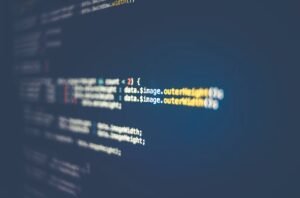Who Owns Artificial Intelligence?
Artificial Intelligence (AI) has become an increasingly significant part of our lives, impacting various industries from healthcare to transportation. But as AI capabilities continue to advance, the question of ownership arises. Who really owns AI technology, and what are the implications? In this article, we delve into the complex web of AI ownership.
Key Takeaways:
- Ownership of AI technology involves legal, ethical, and economic considerations.
- Intellectual property rights play a crucial role in determining ownership of AI inventions.
- Companies investing in AI research and development tend to claim ownership of the resulting technology.
- Gaps in AI ownership frameworks pose challenges in determining rights and responsibilities.
When discussing AI ownership, it is important to consider the legal, ethical, and economic aspects of this emerging technology. While AI itself cannot own anything, the question revolves around the ownership of the technology and its related intellectual property. Intellectual property rights, including patents and copyrights, are central to determining ownership and control over AI inventions.
Companies investing substantial resources into AI research and development often claim ownership of the resulting technology. These companies protect their AI inventions through patents, granting them exclusive rights to make, use, and sell their AI technology for a limited period. However, this approach raises concerns about monopolies and limitations on innovation.
Intellectual property rights help establish ownership of AI inventions, but they can also hinder collaboration and hinder further advancements.
Ownership Disputes and Challenges
The rapidly evolving nature of AI technology has led to several ownership disputes in recent years. One notable example is the battle between Waymo (Google’s self-driving car division) and Uber. Waymo accused Uber of stealing its autonomous vehicle technology, leading to a high-profile legal case.
Additionally, the lack of comprehensive ownership frameworks for AI technology poses significant challenges. There are gaps in existing laws and regulations that leave room for ambiguity and disputes. Ownership rights can become even more complex when AI systems are trained using vast amounts of data from multiple sources.
Ownership of AI can be a contentious issue, resulting in legal battles and difficulties due to gaps in ownership frameworks.
Ownership in the AI Ecosystem
When examining the broader AI ecosystem, it becomes apparent that ownership extends beyond individual companies. AI technologies often rely on open-source software and datasets, emphasizing collaborative development and shared ownership. The open-source community plays a significant role in advancing AI capabilities.
In some cases, ownership of AI may be attributed to those who collect and control the data used to train and improve AI systems. Data ownership is a critical aspect of AI ownership, as companies with access to vast datasets hold a competitive advantage in developing advanced AI models and applications.
| Player | Key AI Ownership Contributions |
|---|---|
| Big Tech Companies | Investments in AI research and development, AI patents |
| Open-Source Community | Development and sharing of AI software, collaboration |
| Data Collectors | Ownership of data used to train and improve AI models |
The Future of AI Ownership
As AI continues to advance, ownership frameworks and regulations will need to adapt. Collaboration and openness in the AI community will become increasingly important to foster innovation while addressing ownership concerns. Striking a balance between protecting intellectual property rights and promoting shared ownership and collaboration will be crucial in the future of AI ownership.
- Legal frameworks need to be developed to address ownership disputes and protect innovation.
- Data ownership regulations and guidelines must be established to ensure fair access and utilization.
- International collaboration is crucial to harmonize AI ownership standards and promote cooperation.
In this rapidly evolving landscape, maintaining a dynamic and adaptable approach to AI ownership will shape the future of the technology.
| Challenges | Considerations |
|---|---|
| Ownership disputes | Legal frameworks, arbitration, and IP protection |
| Gaps in ownership frameworks | Regulatory updates, global standards, collaboration |
| Data ownership | Fair access, privacy, and security measures |
Overall, the question of who owns AI technology is multifaceted, involving legal, ethical, and economic considerations. As AI technology continues to progress, it is essential to address ownership challenges, establish comprehensive legal frameworks, and promote collaboration in the AI community. The future of AI ownership lies in finding a delicate balance between protecting intellectual property rights and fostering innovation through shared ownership and cooperation.
| Recommendations |
|---|
| Develop legal frameworks for ownership disputes |
| Establish regulations for data ownership |
| Promote international collaboration |

Common Misconceptions
Artificial Intelligence Ownership
There are numerous common misconceptions surrounding the ownership of artificial intelligence (AI) that often lead to confusion and incorrect assumptions. It is important to dispel these misconceptions in order to have a better understanding of the complex landscape of AI ownership.
- AI is exclusively owned by large tech companies.
- All AI technologies are under strict patent protection.
- Ownership of AI necessarily implies full control and decision-making power.
AI Ownership Myth #1: AI is exclusively owned by large tech companies.
One of the most prevalent misconceptions around AI is that it is solely owned by large tech companies. While it is true that companies like Google, Facebook, and Amazon have made significant investments in AI research and development, AI technology is not limited to these industry titans. In fact, AI is being developed and implemented by a wide range of organizations, including startups, academic institutions, and government research agencies.
- AI is democratizing, allowing more individuals and organizations to access and develop AI technology.
- The open-source AI community is actively contributing to the development of AI technologies.
- Innovation in AI is not limited to a few dominant players; new discoveries and breakthroughs are emerging from diverse sources.
AI Ownership Myth #2: All AI technologies are under strict patent protection.
Another common misconception is that AI technologies are all protected by rigorous patent systems. While some AI-related inventions are indeed patented, the landscape is far more complex. AI often builds upon existing technologies and research, so it can be challenging to obtain exclusive patent rights. Additionally, many AI advancements are developed as open-source projects or are protected by other forms of intellectual property rights.
- Open-source AI frameworks, such as TensorFlow and PyTorch, have propelled the development of AI and are freely available for anyone to use and modify.
- Patent protection in the field of AI is relatively limited due to the intricate nature of AI technology and the breadth of prior art.
- Intellectual property rights related to AI are not solely based on patents; copyrights and trade secrets also play significant roles.
AI Ownership Myth #3: Ownership of AI necessarily implies full control and decision-making power.
Many people mistakenly believe that owning AI technology automatically grants full control and decision-making power over its use. However, this is not the case. AI systems are developed and trained using vast amounts of data, often collected from various sources. The ownership of AI technology does not necessarily confer ownership or control over the underlying data, which may have its own ownership rights and privacy considerations.
- Data ownership remains a complex and evolving area of law, with different regulations and interpretations around the world.
- Data accessibility and privacy concerns can limit the full control and decision-making power that AI owners have over the technology.
- Collaborations and partnerships between different entities may be necessary to fully leverage and utilize AI technology.

Who Owns Artificial Intelligence?
Artificial intelligence (AI) has become an integral part of our lives, impacting various sectors such as healthcare, finance, and transportation. With the rapid advancement of AI technology, questions about ownership and control arise. This article explores ten intriguing aspects of AI ownership, highlighting the key players and their influence.
1. AI Research & Development Investment
Investment in AI research and development (R&D) has surged in recent years. In 2020, Alphabet Inc. spent a staggering $26 billion on R&D, with a significant portion dedicated to AI development.
2. Intellectual Property Rights
Securing intellectual property rights is crucial in the AI landscape. As of 2021, IBM holds the largest AI patent portfolio, boasting over 9,100 AI-related patents.
3. AI Startups Acquisitions
Major tech giants like Facebook, Google, and Apple regularly acquire AI startups to expand their AI capabilities. In 2020 alone, Google acquired 16 AI startups, enhancing its AI dominance.
4. AI in Healthcare
The healthcare industry heavily relies on AI for diagnostics and treatment. Google holds vast amounts of medical data through partnerships with healthcare providers, granting them significant influence in the AI healthcare domain.
5. AI Ethics and Regulations
Developing ethical AI frameworks and regulations is crucial for responsible AI use. The EU leads in this aspect, with the General Data Protection Regulation setting strict guidelines for AI data usage.
6. AI Stardom: Key Figures
Renowned personalities in the AI field, like Elon Musk, Andrew Ng, and Yoshua Bengio, wield significant influence. Their innovative ideas and actions shape AI development strategies and public perception.
7. AI Open-Source Movement
The open-source movement has played a pivotal role in AI development. TensorFlow, an AI library developed by Google, has become one of the most widely used AI frameworks worldwide.
8. National AI Strategies
Various countries have laid out national AI strategies to ensure competitiveness. China’s “New Generation AI Development Plan” strives to make China the world leader in AI by 2030.
9. AI in Financial Markets
AI algorithms are utilized extensively in financial markets to make trading decisions. Companies like Citadel and Renaissance Technologies are renowned for their AI-driven trading strategies.
10. AI Collaborative Partnerships
Collaborative efforts between companies, research institutions, and governments drive AI advancement. For instance, Microsoft collaborates with OpenAI to pioneer new AI technologies and democratize access to AI tools.
In conclusion, AI ownership is a complex ecosystem involving tech giants, start-ups, individuals, and regulatory bodies. Investment in AI R&D, intellectual property, acquisitions, and collaborations emerge as key factors influencing AI ownership. As AI continues to evolve, the balance of power and control over AI technology remains a crucial aspect that will shape our future.
Frequently Asked Questions
Who Owns Artificial Intelligence?
What is artificial intelligence?
Can artificial intelligence be owned?
Are there legal frameworks for AI ownership?
Can AI be patented?
Who typically owns AI technology developed by employees?
Are AI creations protected by copyright?
Can trade secret protection apply to AI?
Can AI systems be considered public domain?
What happens when multiple entities claim ownership over the same AI invention?
Can AI creations be licensed to others?




